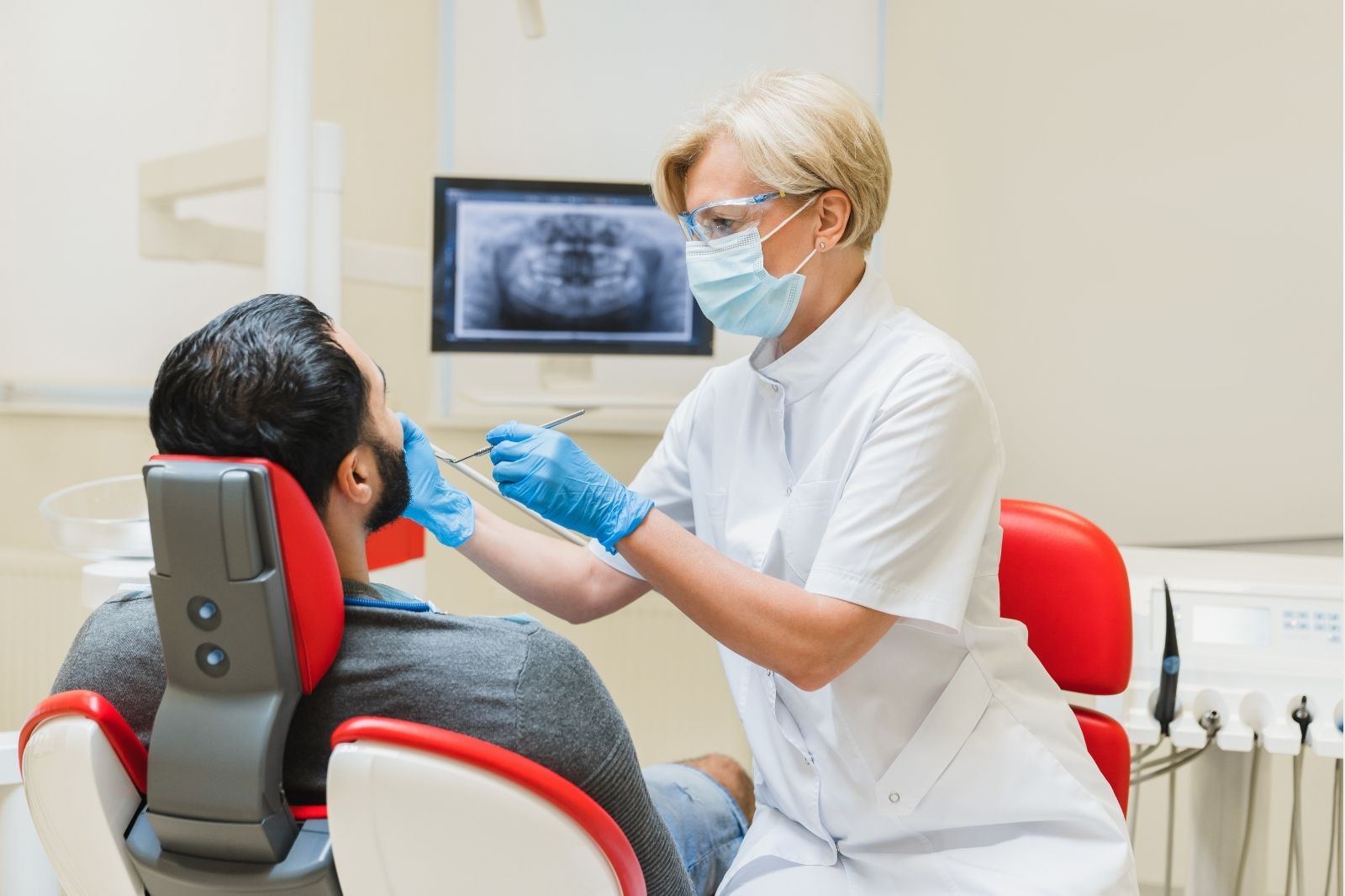Is there any chance you’ve felt a hard, smooth bump or a lump in your mouth? Such a feeling may cause irritation in your mouth and may be accompanied by fear and worry. It would be best not to panic since this bump might be oral Fibroma.
What is Fibroma?
Oral Fibroma, also referred to as oral polyp, is a type of non-cancerous tumour which grows in the mouth. They are benign. It can be seen anywhere on the floor of the mouth, underneath the tongue, or even at the back of the throat. It is a sole lesion that is smooth and firm when touched. It is pink in colour, similar to the normal colour of your mouth, but the colour may be darker if the area is bleeding.
Oral Fibroma may develop as a result of trauma or localized irritations due to consistent biting of the insides of your cheeks and lips. It may affect your tongue, gums, lips, and the insides of your cheeks. It is estimated to be about 1 centimetre in diameter but may increase if the irritation continues. This condition affects people of both males and females, and it is mostly seen in older adults. It is estimated to affect 1 to 2 percent of adults.
Types of Oral Fibroma
The following are the two types of oral Fibroma:
Epulis Fissuratum
Occurs due to severe irritation of the denture flange against the meet point of the inner cheeks and the gums. It mostly affects older people.
Giant Cell Fibroma
It occurs at any age, and it is not caused by irritation. It is mostly felt on your tongue or palate.
Causes of Fibroma
Oral Fibroma is caused by localized irritation of the soft tissues in your mouth. They can form in the organs of your mouth, such as lips, gum, tongue, and inside the cheeks. It may develop due to improper fitting of dentures as they may cause irritation inside your mouth and also repeated lip and cheeks biting.
Symptoms of Oral Fibroma
Oral Fibroma may be accompanied by several symptoms, such as the development of lumps inside your mouth, the presence of uneven surfaces in your cheeks and gums, and your cheeks and gums may look pale and sometimes dark in colour.
Oral Fibroma Diagnosis
Oral Fibroma is diagnosed through dental examination. A biopsy will be taken to remove the lesion. If the results show typical dense fibrous tissues with few cells, it means that you have oral Fibroma.
Treatment for Oral Fibroma
Oral Fibroma is treated only through a surgical procedure, and it is likely to reoccur if the source of irritation is continued. There are two types of dental surgery performed, and they are:
Laser Removal
Laser removal involves the use of an anesthetic that numbs the fibrous area, and the oral Fibroma is removed. The affected part is swept continuously with the laser to remove the Fibroma entirely. It does not require suturing as the laser cauterizes and seals the incision when the Fibroma is removed.
This procedure is done in about 15 minutes, and it is not painful. You won’t bleed either, even though the anesthetic effect may not disappear then. After the surgery, you can continue with a normal routine as no special care is required.
Scalpel Removal
A scalpel is used to perform this surgery. The affected part is numbed and then cut with the scalpel. Scalpel removal requires suturing, and the number of sutures is dependent on the size of the Fibroma. Once the procedure is done, you must provide special care to the wound to prevent infections.
Visit your dentist if you experience any discharge, swelling, or pain after surgery, as this may be due to an infection. Keep away from very spicy or hot foods as you are healing as this may irritate the incision.
Prevention of Oral Fibroma
Prevention of oral Fibroma begins with your oral habits. Improve your oral habits by avoiding biting your cheeks and lips. If you have dental appliances, ensure they are well fit. By doing that, you will reduce the constant irritation of your mouth, thus preventing any occurrence of oral Fibroma.
Contact Us
Are you experiencing any of the above symptoms, contact us today to schedule an appointment and have one of our dental specialists, at the Upper Hunt Club Dental Centre in Ottawa, make a diagnosis.













